R&B star Ledisi to be featured vocalist at Emorja Roberson's ND doctoral thesis concert
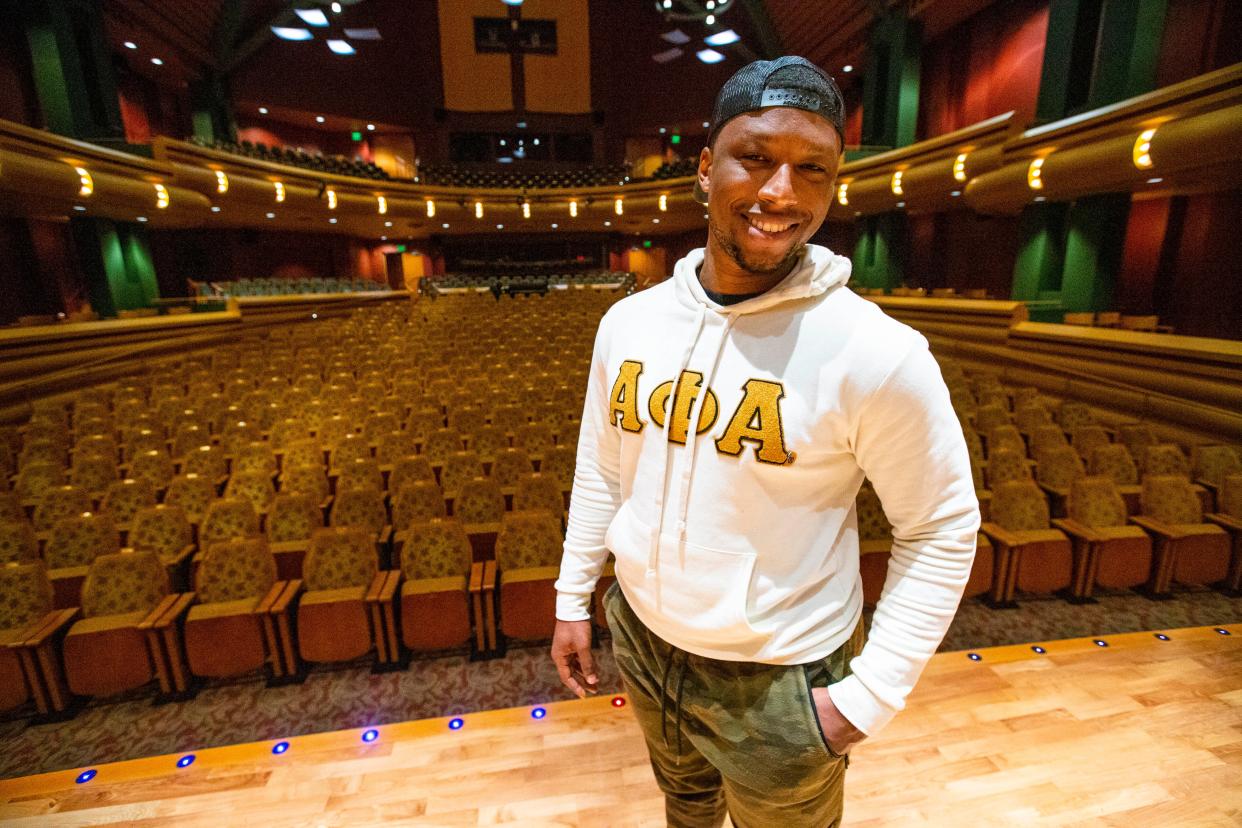
An oratorio usually tells the story of saints or Biblical figures, with a narrator and a chorus delivering the words alongside accompaniment of a classical music ensemble.
The form's most celebrated composers, Bach and Handel, flourished in the 18th century, but oratorio style has continued to evolve — Emorja Roberson provides the contemporary proof of that.
A doctoral candidate in choral conducting in the University of Notre Dame's sacred music program, he presents his own original oratorio, "BE-SPOKEN," on April 30 at the DeBartolo Performing Arts Center.
On tour: Crossing race and Africa, the Notre Dame Folk Choir learns music's power to advocate
Although it sticks to the formal conventions associated with oratorios, "BE-SPOKEN" is rooted in African-American musical genres, including jazz, R&B and hip-hop.
And Roberson has lined up some star power for this doctoral degree recital: R&B star Ledisi has agreed to be a guest vocalist on two of the pieces in the work, as has the Christian rapper King Chav, who co-wrote a piece for "BE-SPOKEN" that he'll perform April 30.
Roberson was born in Fort Lauderdale in 1991 and grew up in another Florida city, DeFuniak Springs. He graduated from the University of North Florida in 2013.
Since arriving in South Bend, he has been a member of the Notre Dame Folk Choir and wrote a song for its 2020 album, "Catch the Spirit"; joined the music ministry at Olivet African Methodist Episcopal Church in South Bend; and has had several of his works performed by the South Bend Symphony Orchestra at three of its annual Martin Luther King Jr. Day Celebration concerts.
On the program: South Bend Symphony concert celebrates King's message and life
He already has the distinction of being Sacred Music Notre Dame's first African-American master's graduate. With "BE-SPOKEN," he'll become the program's first Black doctoral recipient.
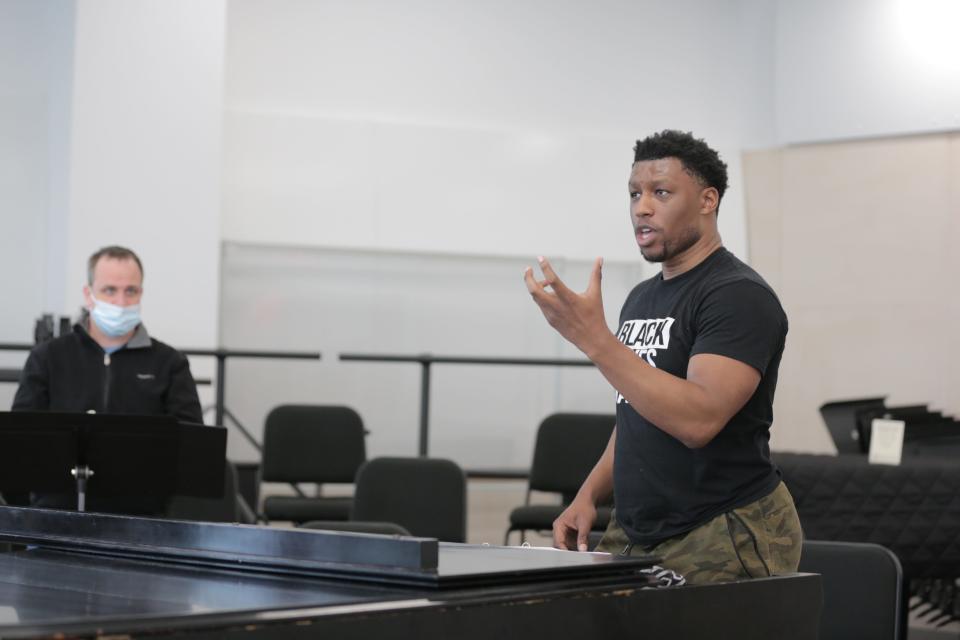
Collaborative spirit
Most of the work is Roberson's own creation, but he ceded ground in certain areas to a team of collaborators.
"BE-SPOKEN" opens with an overture provided by Anthony Walker, a veteran composer, arranger and pianist.
Next, the piece goes into a work song titled "Heaven on My Mind," featuring two tenors, two baritones and the blues harmonica of Hugh Page, a Notre Dame theologian and blues musician.
At this point, it becomes clear that this oratorio tells the story of Black people in America.
A re-imagined version of "Let My People Go" follows.
"I wanted to give it a new face," Roberson says. "There's a lot going on there, especially in the use of polyrhythms and syncopation. It's very poetic in the beginning, as it describes the work day of the enslaved. From there, we go to the voice of Moses, something that returns throughout the piece."
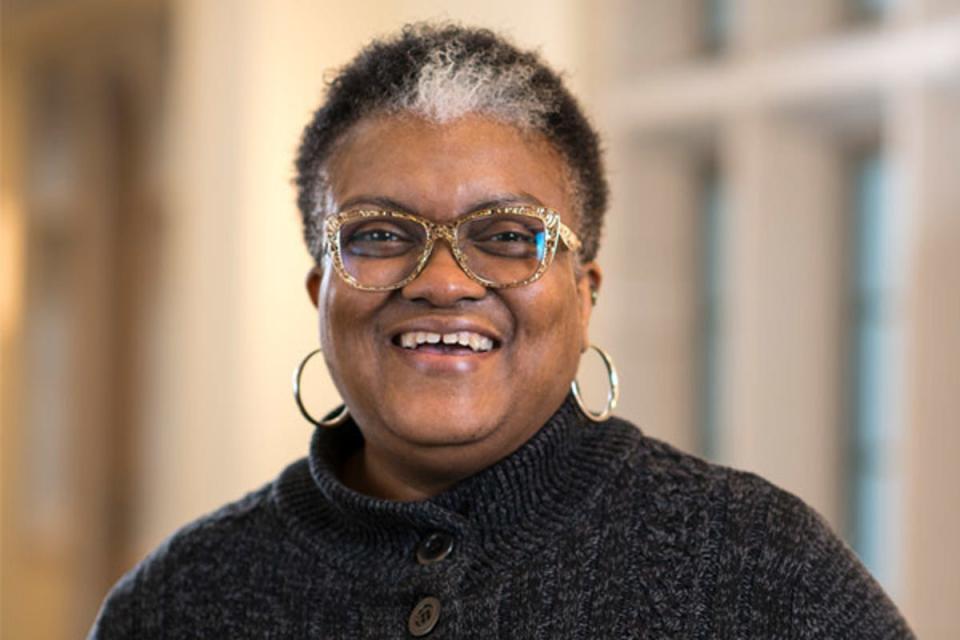
Roberson brought in Pamela Blair, founder of South Bend's Poetry Den, to provide the text for the next song, "In My Heart You'll Stay," the lament of a mother who has lost her child to violence.
"I needed to have a Black woman write that text," Roberson says. "I'm not a mother. She is. I wanted the writer to be someone who understands what it's like to carry a child, and what it's like to love from a mother's standpoint."
"In My Heart You'll Stay" is scored for string quartet, piano, drums, choir, narrator and vocal soloist. Walker's connections came in handy in this case. Walker has served as music director for Ledisi, and she agreed to take the lead vocal for this and another song in "BE-SPOKEN," bringing in celebrity clout that is certainly uncommon for most doctoral dissertations.
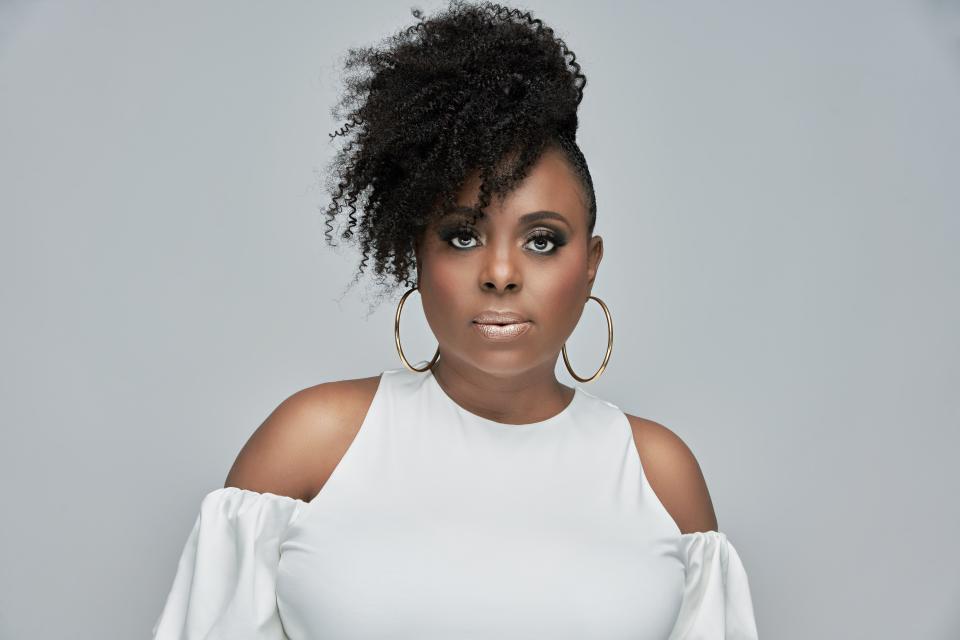
Ledisi has released 11 studio albums, netting 14 Grammy nominations and one win in 2021 for Best Traditional R&B Performance. She is also an author and an actress, most prominently in her role as gospel legend Mahalia Jackson in the 2014 Martin Luther King Jr. biopic "Selma."
The grief that "In My Heart You'll Stay" describes is made explicit in the next song, "Stop Killing Me," a meditation inspired by the killing of George Floyd.
Seeking inclusion: 'At long last': South Bend Symphony shines a light on music, influence of Black composers
Roberson started work on "BE-SPOKEN" several years ago, but progress had temporarily stalled during the early stages of the COVID-19 pandemic. Floyd's death set Roberson back to work, and he reached out to King Chav to collaborate on "Stop Killing Me."
King Chav wrote the lyrics and will rap them live at the concert; Roberson has arranged some of the words for the chorus to sing, which means that the choir actually raps at the end.
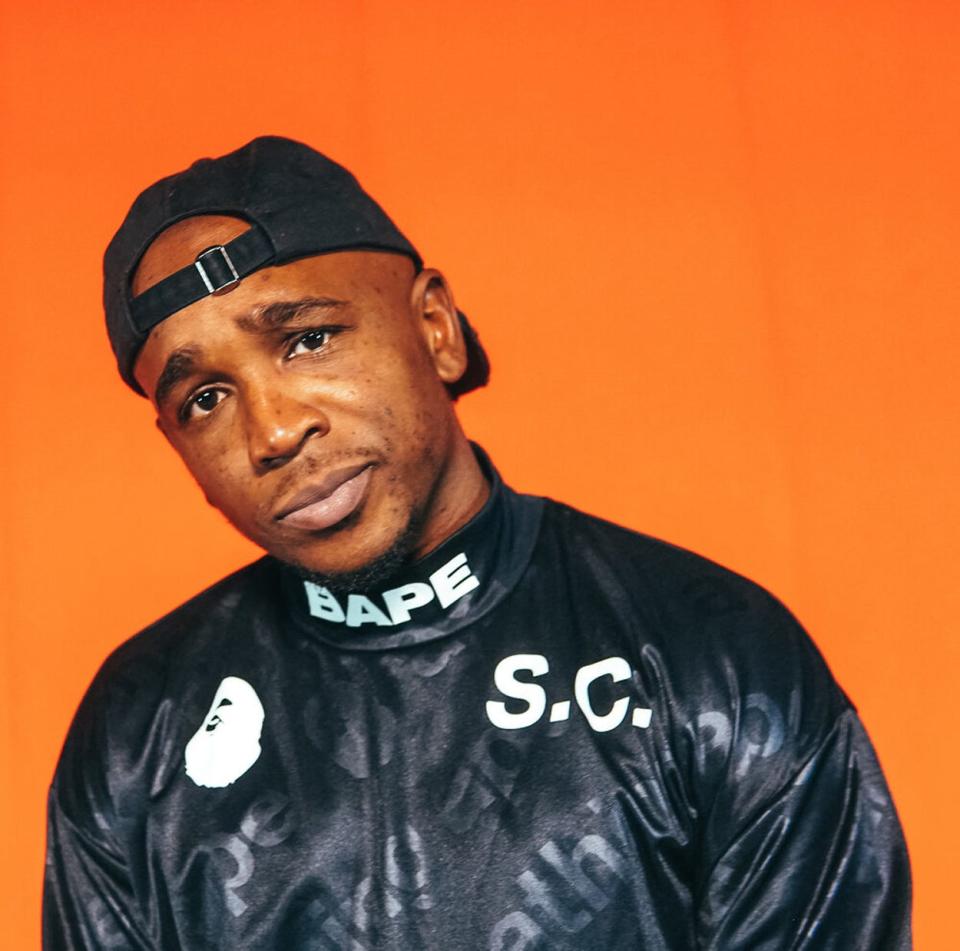
'It Is Well'
The hymn "It Is Well" is the next stage of the story.
"It's about someone who has lost so much, yet he can still find the strength to utter the words, 'It is well.' It's an affirmation for people who no longer have what they used to have," Roberson says. "Nothing can take away the hurt, but there is still some kind of assurance that lies beneath it all."
Ledisi then returns to sing a funky original song of Roberson's, called "Get Up." The energy continues to build into "Who I Am," a celebration of Black culture in America.
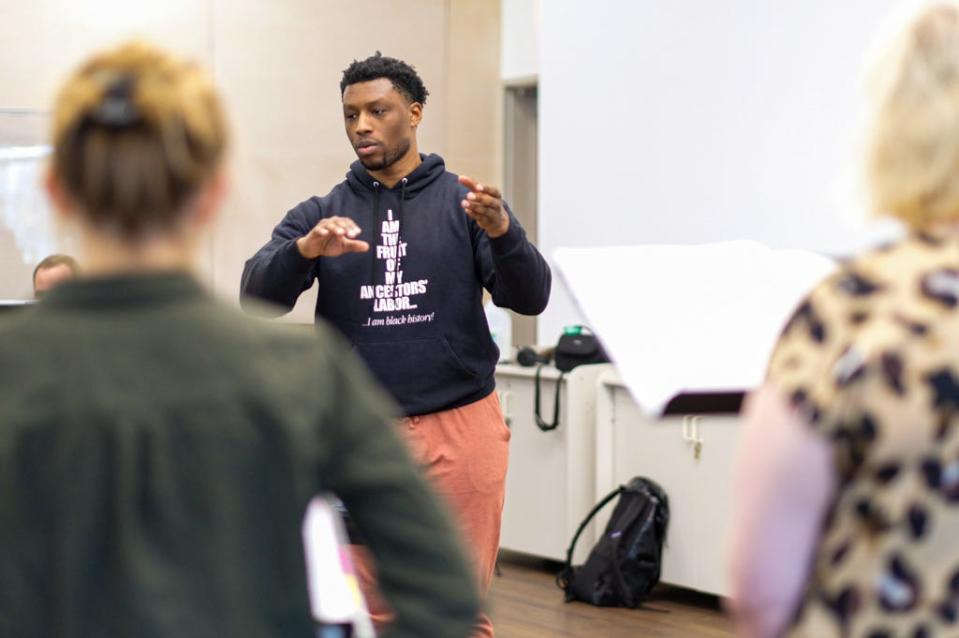
"BE-SPOKEN" concludes with Roberson's arrangement of "Fear Not," a gospel song derived from Isaiah 41:10 (So do not fear, for I am with you; do not be dismayed, for I am your God. I will strengthen you and help you; I will uphold you with my righteous right hand).
"Fear Not" features another guest vocalist, Chicago-based powerhouse Donishisa Ballard.
"She's great throughout the whole song, but her specialty is the vamp," Roberson says. "There's an instrumental build-up, but then she takes charge."
There are plenty of ecclesiastical musical performances at Notre Dame, but Roberson observes that many people in the audience might be experiencing the incendiary explosiveness of improvised gospel vocals for the first time when Ballard cuts loose.
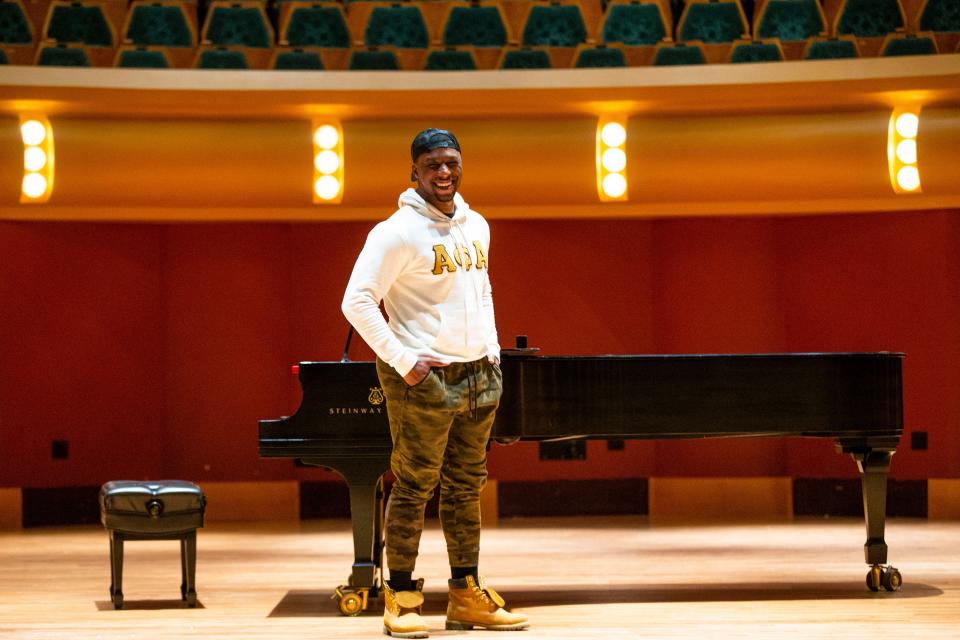
"I told her to do whatever she needs to do," he says. "Work 'em. They'll be just fine."
On stage
? What: Emorja Roberson's "BE-SPOKEN"
? Where: The University of Notre Dame's DeBartolo Performing Arts Center
? When: 7:30 p.m. April 30
? Cost: $25-$15
? For more information: Call 574-631-2800 or visit performingarts.nd.edu.
This article originally appeared on South Bend Tribune: R&B star Ledisi lends her voice to Notre Dame student's thesis